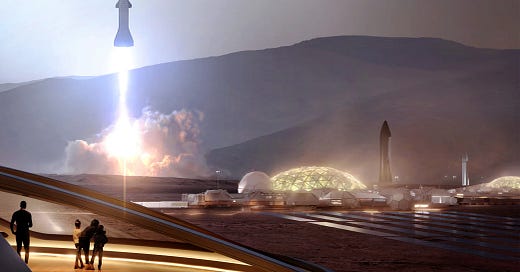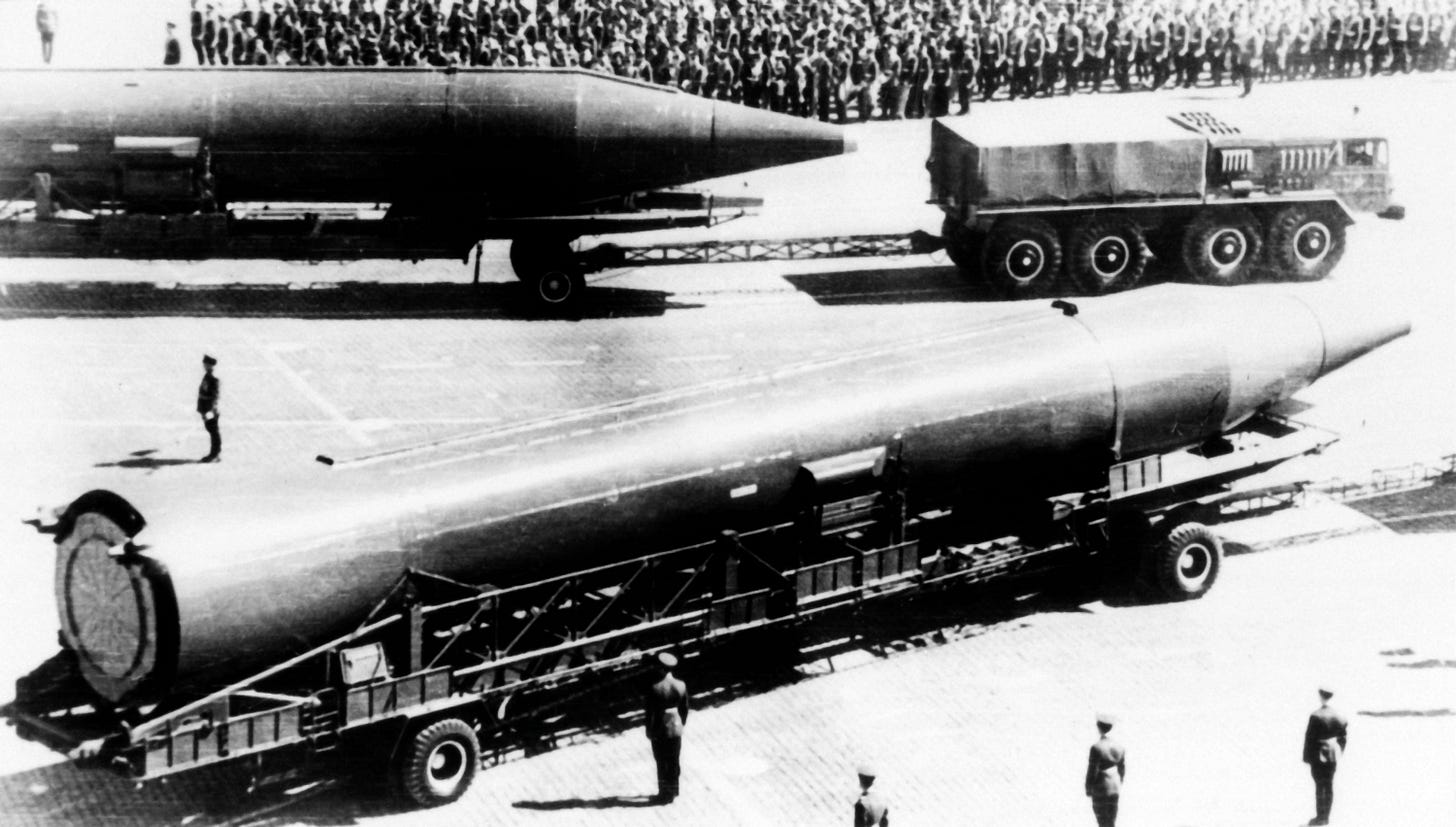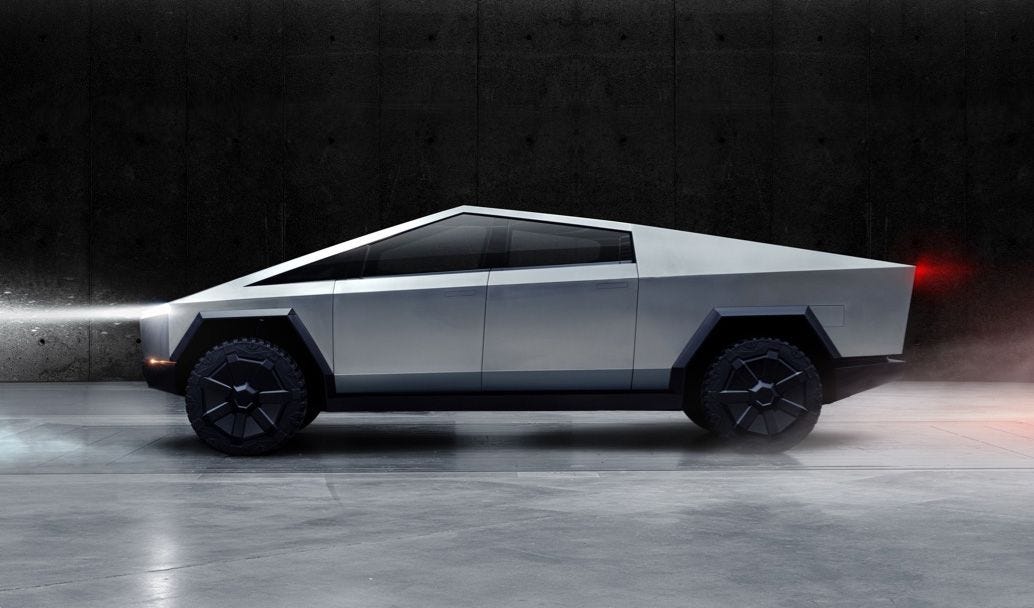The only rules are the ones dictated by the laws of physics. Everything else is a recommendation. - Elon Musk
Last week's post—"The Chaotic-Neutral 'Messiah'"—covered Elon Musk, the person: his cruelty, self-inflicted misery, messiah complex, addiction to risk, and unique concoction of traits that would make Elon an outlier in the majority of simulations (even if luck played a big role for Elon in this universe).
In part two, let's examine how Elon solves business problems using his most brilliant trait, "first-principles thinking."
Wearing Pants Is Not a Law of Physics
Thinking from "first principles" is the act of starting from the most essential building blocks and using reason to add layers beyond that foundation. For instance, in the physics' world of rocketry and cars, i.e. SpaceX and Tesla, first-principles thinking involves starting from the literal atomic level. In biology, first-principles thinking begins at the sub-cellular level, and so on.
Reasoning from first principles sounds like the most obvious way to think, but it's definitely not the most common way to think. Instead, most of us use heuristics, a fancy term for mental shortcuts, because they save cognitive energy, although they lead to our classic cognitive biases.
One heuristic that we all use is "reasoning by analogy." Reasoning by analogy is the act of outsourcing our thinking to conventional wisdom or the opinions of friends, family, echo chambers, political parties, etc.
In lieu of writing 5,000 words about first-principles thinking versus reasoning by analogy, I'll point you to Tim Urban, who already did that in his classic Wait But Why blog post called "The Cook and the Chef: Musk's Secret Sauce."
To summarize the two modes of thinking:
First-principles thinking starts from the foundational laws of the universe: "What are the melting points of these 30 elements, and which would be best in a rocket as a result?"
Reasoning by analogy defers to conventional wisdom or the answers that other people have already generated: "This is how NASA built their Saturn V rocket, so let's figure out how to do that more cheaply."
Using four anecdotes from Walter Isaacson's Elon Musk biography, let's see what we can take from Elon’s first-principles problem solving and apply to our own, non-rocket-building lives.
When Russians Jack Up the Price of the ICBMs We’re Trying to Buy (We've All Been There)
If the ratio is high, you're an idiot. - Elon
After selling PayPal and deciding to spend his money sending a greenhouse mission to Mars (been there, too), Elon flew to Russia to buy a decommissioned, Soviet-era rocket (again, same). The Russians got him hammered via vodka shots, then offered to sell the ICBM for a ridiculous sum of money.
"As he stewed about the absurd price the Russians wanted to charge, he employed some first-principles thinking, drilling down to the basic physics of the situation and building up from there. This led him to develop what he called an 'idiot index,' which calculated how much more costly a finished product was than the cost of its basic materials. If a product had a high idiot index, its cost could be reduced significantly by devising more efficient manufacturing techniques."
Elon decided to calculate how much a rocket should cost based on the price of the underlying materials. When he realized how cheap the raw materials were relative to the Russian’s price, he decided to start SpaceX and build the rockets in-house.
The Lesson
The Russia anecdote is first-principles thinking at its purest. It was only when the Russians tried to gouge Elon that he was forced to do some basic math about how much a rocket should cost. At that moment, he realized that he could theoretically build a rocket for way cheaper, which SpaceX did.
Even if you or I are not scrutinizing the costs of raw materials to fly to Space, Elon's discovery that a rocket—which should the most advanced, heavily-researched technology ever—doesn't need to be so expensive is proof that basically nobody on Earth knows what they are doing. (See: US Senators asking Mark Zuckerberg why Facebook is free, or Catholic couples asking their Priest for marriage advice, because, you know, that Priest definitely has a lot of dating experience.)
Even rocket scientists follow the rules that they inherited without usually asking “why?”
When we ask “why?,” and then ask “why?” to the answer of that question, and keep doing that until we reach a "just because," we'll likely discover the assumptions and made-up constructs that guide our lives. Those assumptions can be changed for the better once we realize they are mutable.
The Cybertruck: Why You Need Both Intuition and Rote Knowledge
It was a truly out-of-the-box idea, a way to rethink what a vehicle could be. - Elon
In designing Starship, the giant rocket-plus-spaceship that is slated to take the first humans to Mars, SpaceX decided to use stainless steel (for cost and its better melting point) instead of titanium or aluminum, which have long been the norm for NASA.
Elon was enthralled with using stainless steel for a rocket, and realized it would also be ideal for use in Tesla's futuristic, controversial Cybertruck. “A stainless steel body would not need painting and could bear some of the vehicle's structural load,” he said. “To the best of my knowledge, this has never been proposed before.”
The lesson
I am a lifelong memorizer who now preaches "the end of memorization," and I sadly believe that stuffing facts into our brains has lost its usefulness in the age of Google and ChatGTP. I've come to realize, however, that memorization is useful if you also deeply understand the roots of a subject.
A simple example: it is pointless for a football coach to memorize which plays get called if he doesn't understand football's rules, but if he (or she!) has a deep understanding of football knowledge, then remembering a ton of plays is clearly helpful.
The same is true with selecting materials for rockets or cars. I could spend a day memorizing the costs of different raw metals, but I would have no intuition for which materials would work best on a rocket or truck. Elon's combination of intuition and rote knowledge allowed him to both question the existing paradigm of truck construction and apply that knowledge to Tesla.
School emphasizes rote knowledge above all else, but if you don't understand a subject's fundamentals, then none of that knowledge has usefulness. You need both!
Giant Hot Wheels: Why Deleting Must Come First
Elon's executives sometimes move their lips and mouth the words [to the algorithm], like they would chant the liturgy along with their priest. - Walter Isaacson
In 2018, Musk was playing with a toy version of a Tesla Model S when he realized that just like the mini version, the real Tesla could have its entire chassis cast as one piece of metal, dramatically simplifying the Tesla production line:
"The machines inject bursts of molten aluminum into a cold casting mold, which can spit out in just 80 seconds an entire chassis that used to contain more than 100 parts that had to be welded, riveted, or bonded together. The old process produced gaps, rattles, and leaks. 'It went from a horrible nightmare to something that is crazy cheap and easy and fast,' says Musk."
The Lesson
After navigating various production nightmares throughout his career, Musk created the "production algorithm" that he force feeds to every employee. In order:
Question every requirement
Delete
Simplify and Optimize
Accelerate cycle time
Automate
In the Russia ICBM story, Elon drilled down to the literal elementary level of what a rocket is made of. In this Tesla example, we see the benefit of using first-principles thinking to question how it is manufactured as well. To consistently improve the "how" in the manufacturing process (which lowers the "idiot index"), Musk instituted the above algorithm.
The biggest mistake that Elon learned along the way is that automation must come last. Trying to automate 100+ processes ruined numerous Tesla and SpaceX manufacturing lines, and eventually he learned that they needed to delete everything possible and then add steps back before automating. "If you do not end up adding back at least 10% of the deleted parts, you didn't delete enough," he says.
There are usually numerous steps in our own lives that we should (and can) eliminate before trying to painfully squeeze them into our schedule. Could those Zoom meetings be done over email? Can we order groceries ahead if we don't have time to shop? Can we pay a kid to mow the lawn so that we have time to go on a nice walk with our dog?
Inertia forces us to keep more than we need, both on our calendars and in our homes. Flex the uncomfortable muscle of subtraction, because if you regret cutting something, you can add it back!
Okay, one final story.
Fully Tented: Why All Requirements are Dumb
Step one should be to question the requirements. Make them less wrong and dumb, because all requirements are somewhat wrong and dumb. - Elon
In 2018, short sellers of the Tesla stock were gloating, saying that Tesla had no chance to start producing 5,000 cars per week (the number Tesla said was critical for survival). Tesla’s Fremont plant had improved, but not quite enough, and everyone knew it would take a year-plus to get a permit to build another factory.
"Musk likes military history, especially the tales of warplane development. At a meeting at the Fremont factory on May 22, he recounted a story about WWII. When the government needed to rush the making of bombers, it set up production lines in the parking lots of the aerospace companies in California...
There was a provision in the Fremont zoning code for something called a 'temporary vehicle repair facility.' It was intended to allow gas stations to set up tents where they could change tires or mufflers. But the regulations did not specify a maximum size. 'Get one of those permits and start building a huge tent,' Elon told [president of automotive] Guillen. 'We'll have to pay a fine later.'...
In two weeks, they were able to complete a tented facility that was 1,000 feet long and 150 feet wide, big enough to accommodate a makeshift assembly line. Instead of robots, there were humans at each station."
The Lesson
For most of us, first-principles thinking will rarely involve actual physics, but will instead be a practice of questioning the rules that we're supposed to follow, of taking a pause from reasoning by analogy. The Tesla tent story reminds me of a Steve Jobs quote:
Life can be much broader once you discover one simple fact. And that is, everything around you that you call life was made up by people that were no smarter than you. And you can change it, you can influence it.
Per Tim Buzza, SpaceX VP of launch and testing: "We would say, 'There is a military specification that says it's a requirement.' And [Elon] would reply, 'Who wrote that? Why does it make sense?'"
SpaceX realized that appealing to authority teaches us to do exactly what other people do, which does nothing but advance the status quo. By definition, the status quo is not the recipe for a disruptive business.
As children, we are sponges who learn first-principle laws (e.g. boiling water will burn us) and—more often—rules about how to function in a family and society (e.g. you need to bathe). Few, if any, of those social decorums are rooted in the first principles that govern the universe, so it's best to treat them as recommendations, not Commandments. (I mean, please bathe, but do it because nobody wants to be near you if you don't, not because someone told you to.)
Conclusion
To recap the four lessons:
Keep asking “why?” until you discover which assumptions guide your life.
Rote knowledge without a deep understanding of a subject is useless.
Subtract things from your life before you try to automate them.
Treat society’s made-up rules as recommendations (don’t go to jail, though).
Being a great first-principles thinker is not enough. In fact, it might only be 20 percent of the answer. The other 80 percent is the willingness to be a contrarian even when we think that others are wrong. And being a genuine contrarian (and not someone who does it for clout) might be harder than rocket science.
Thank you for reading!








